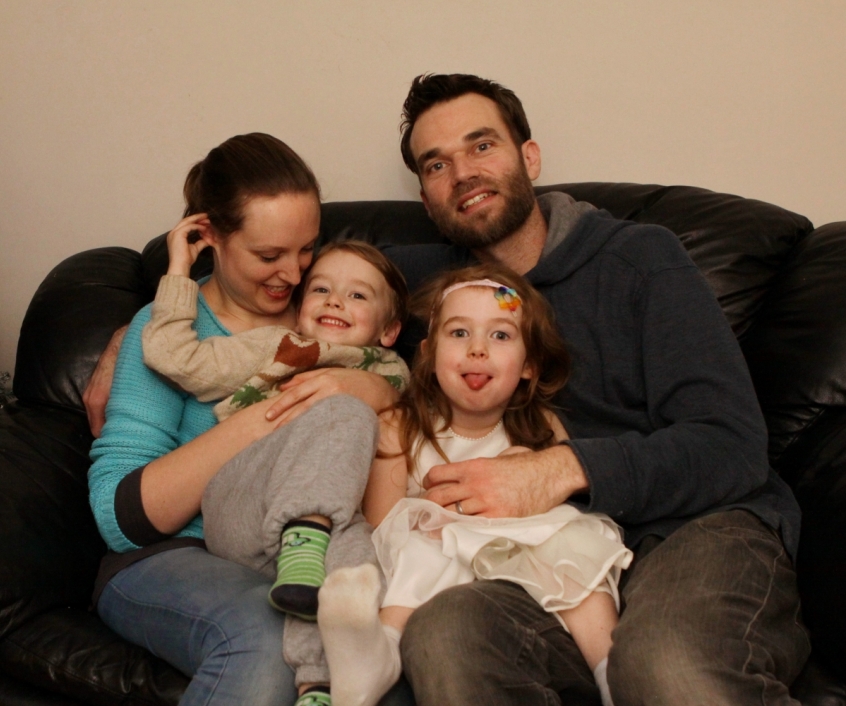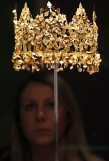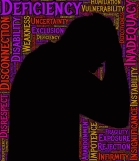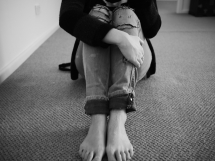After giving birth to her first child, Christian author Hannah Oakland was shocked when the bliss she expected to feel was replaced by an unwelcome "dark cloud of numbness". She describes feeling like she'd failed, and like she was – in her own words – a bad mother. She feared judgment from other mums for struggling with motherhood at a time when it seemed that everything should feel just right.

Like one in seven new mothers, Hannah was suffering from from postnatal depression (PND).
After her second child and a second round of PND, Hannah decided to counter the culture of shame, and speak out about her experiences of motherhood and depression.
As she shared her struggles with God, her husband and other women, she broke free of the isolation she'd felt trapped by. She has now written a book, The Honest Mums' Club, detailing the ups and downs of her journey.
Hannah, mother to five-year-old Evie and three-year-old Joel, spoke to Christian Today about how suffering from PND has challenged and changed her life, her faith and her experience of church.
While the depression has been dark, she has found hope in the experience which has both changed and deepened her relationship with God. "I am really loved by him and held by him for who I am, not what I can do," she said.
Today is World Maternal Mental Health Day, a day specifically aimed at promoting awareness of postnatal depression and other maternal mental health illnesses that remain stigmatised by society.
"There is a real feeling of having failed when you struggle with motherhood," Hannah said.
"I always felt like you're just supposed to know what to do and motherhood is meant to be a glorious and blissful time. I was worried that my friends would judge me and think I was a bad mother."
Depression of any kind can have an isolating effect, she added. It leaves individuals struggling to recognise their own value, and often feeling ashamed.
"The first time I had PND I was almost too embarrassed to talk to anyone about it. The absolute killer with depression is that it makes you feel alone and that you're not good enough for anyone to help."
The cycle is self-perpetuating, Hannah said, as if you don't share your experiences, you won't receive the support you need, which can lead to the depression worsening.
But when she decided to share her illness with her friends, she was amazed by the number of people who had also been silently struggling.
"It just changed everything," she said.
"Suddenly people who I had no idea were suffering thanked me for talking about it and said they felt exactly the same. For a long time I felt so alone, but when I began sharing my experiences I realised there are goodness-knows how many of us. It's incredibly liberating."
The church she was going to was "phenomenal" in their response, she said. They "held our whole family and looked after us – we were so privileged to be part of such a community."
But although her experience was positive, she warned that "there is a general feeling that there is a stigma attached to mental health in the Church more widely. A sense that maybe you're suffering because you haven't prayed hard enough, or the right person hasn't prayed for you. Maybe you're not reading your Bible diligently enough, suggesting that if you were doing things right you wouldn't feel like this.
"It breaks my heart, as the Church should be the safest place to go."
This negative association with mental health affected Hannah's own relationship with God. When she first got PND, after the birth of Evie, she was "almost too embarrassed to approach God. I didn't want to involve him."
After her son was born, however, the experience "made me re-evaluate the way I relate to God", she told Christian Today.
"I had always wanted to show him how good I was – I wanted to move up his list of favourites. But when I literally had nothing to give him, or anyone else, I found out who he really is.
"The second time I have felt really loved by him and held by him for who I am, not what I can do. Simply because I am his and he loves me. The experience has taught me about the power of grace."
Though her experiences have been incredibly painful, Hannah is adament that there is hope in the darkness. The journey with PND "will be the thing that changed me and made me who I am," she said.
"For me, before the depression I was very concernced to come across well, to develop a facade of someone who has it together. The depression ripped that from underneath me. It forced me to be more honest and more real, to accept my limitations and learn to accept help from other people."
PND still isn't talked about enough, she says, and is determined to see that change. She has written a blog since Joel was nine months old, has set up a support group for women going through the same thing and has now launched her book.
"I dream for the day when it is normal to answer the question 'how are you' with 'this is really difficult', and no one bat an eyelid," she said.
'The Honest Mums' Club' is published by Darton, Longman and Todd, and is available now.



















